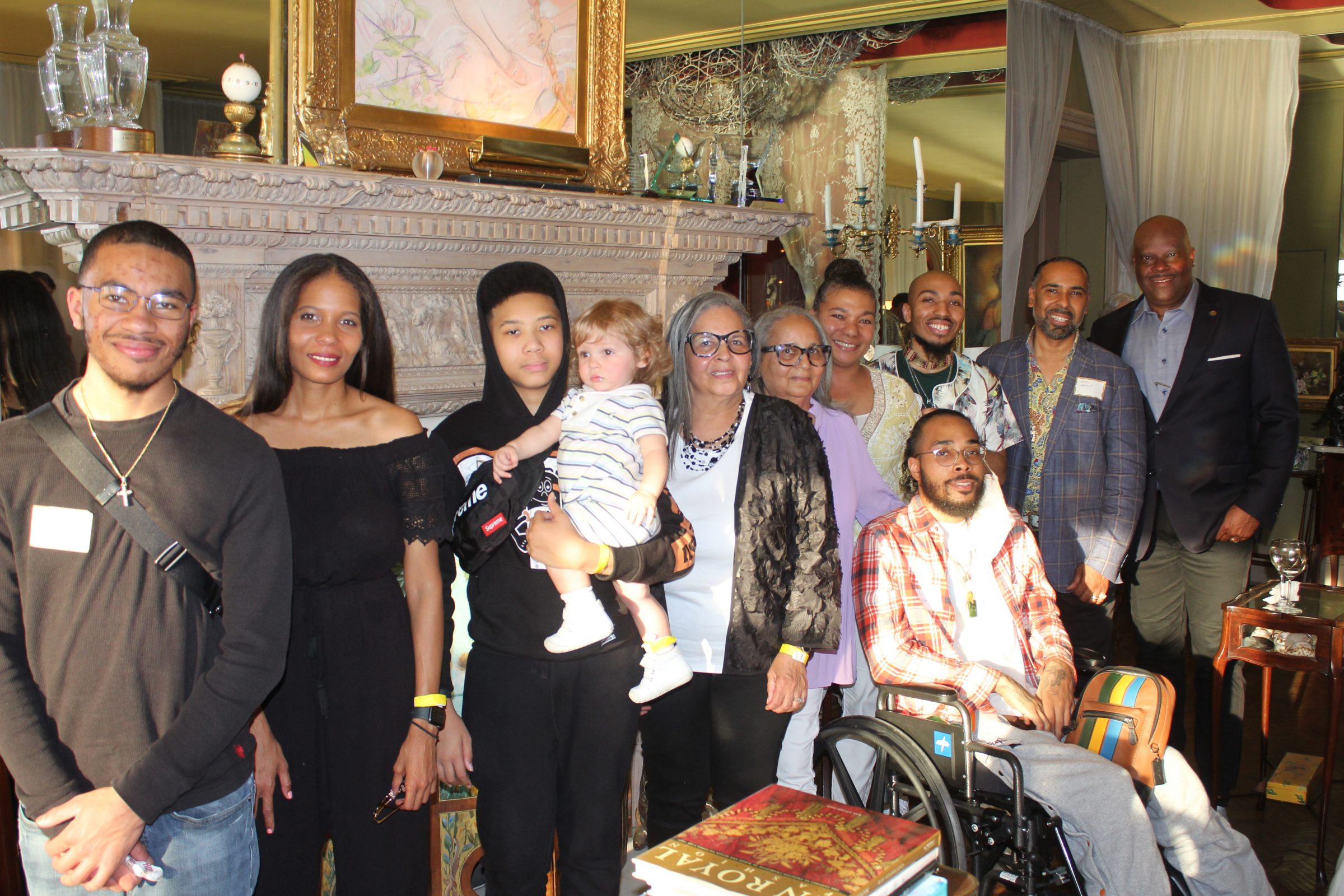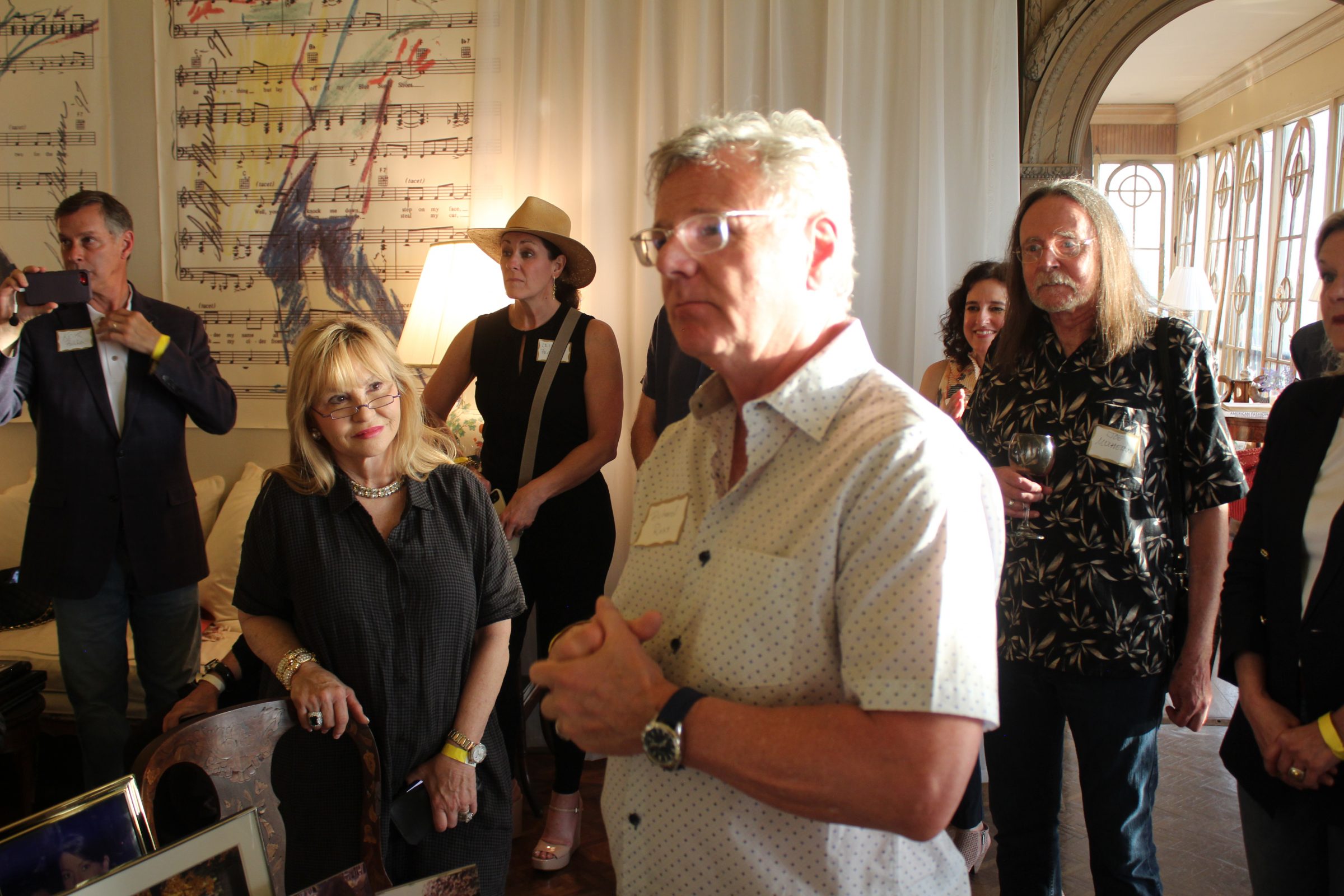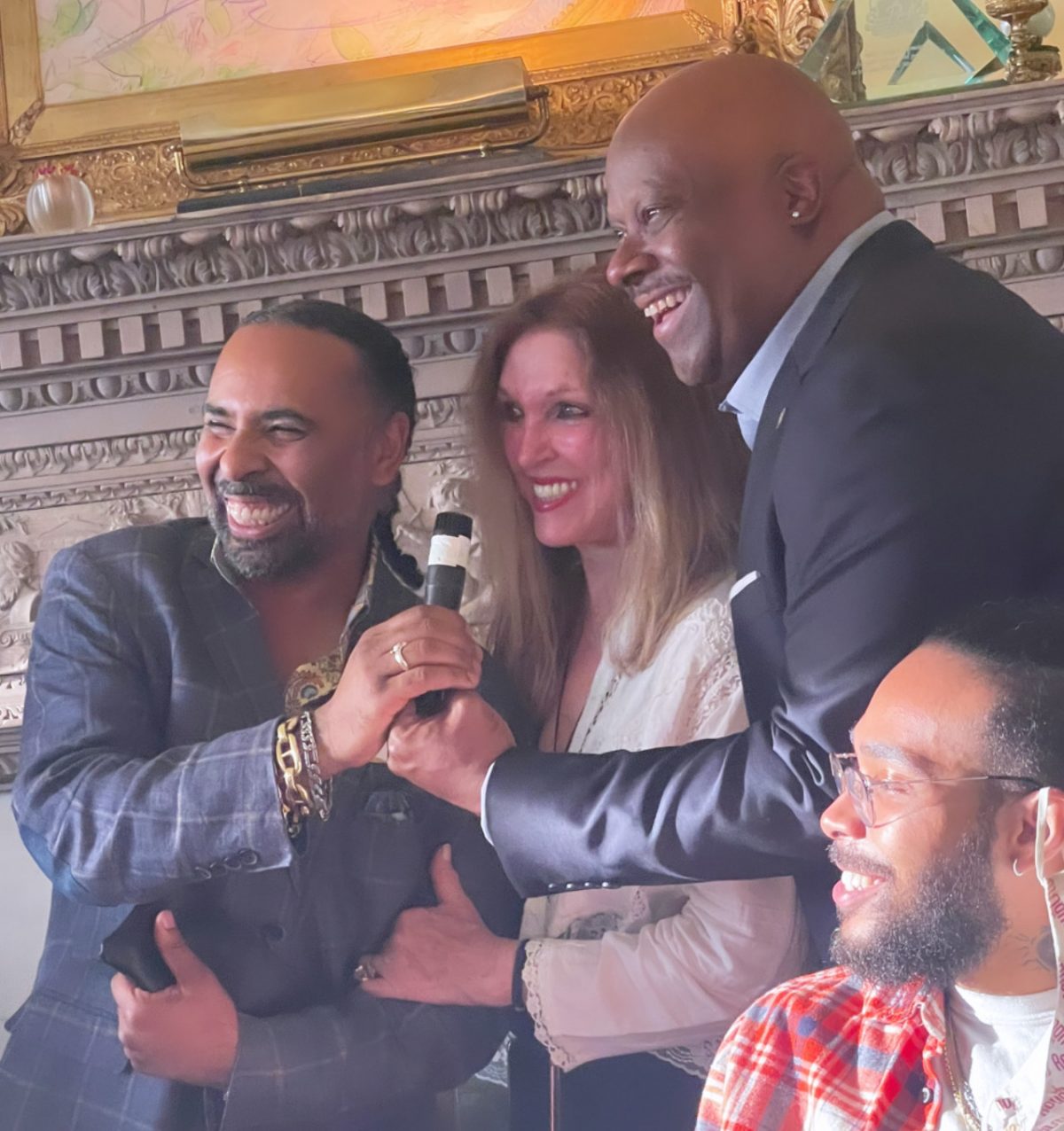Henry Hicks took the microphone at Pat Kerr Tigrett’s “Moonshine at Sunset” soiree, but he didn’t break into song; he literally took the microphone — back to Nashville’s National Museum of African American Music, where he is president/CEO.
The microphone was the one Bruno Mars used to record the Grammy winning “Uptown Funk” at Royal Studios. Lawrence “Boo” Mitchell, studio owner and engineer, presented the microphone to Hicks.
“The microphone is a $100 SM57, which is normally a mike that every bar in America has got on the guitar and snare drum,” Mitchell says. “It’s a really common mike in studio and live. But what’s magic about it is it’s definitely not a microphone you use to do a vocal of any kind unless it’s all you have.
“The reason I used it is he wanted to do his vocals in the control room where the engineer sits and the speakers. And we were under such a time crunch I didn’t have time to pull out headphones and do the normal things you would need to do a vocal in the control room. What might not feed back with the music blasting out of the speakers.”
Mitchell didn’t know that would be what ended up on the record. “I was under the impression we were doing a scratch vocal and I was sure they would replace the vocal in a big studio with a $20,000 mike. But, apparently, they couldn’t duplicate the energy. So, they kept the vocal. His engineer called me about a week later: ‘Oh, the vocal we did on the SM5l7, we’re keeping that for the record.’ And that’s kind of the craziest thing I had ever heard of at that point.”
The microphone is about 15 or 20 years old Mitchell says. “What’s funny about that particular mike is that the in the studio if a piece of gear doesn’t work, I put a piece of white tape on it and the ‘F’ word not to use it. The time had it on there ‘cause I thought it was broke. But it wasn’t the mike. It was the cable. And I never took the tape off.”
So, he presented the mike — complete with white tape — to Hicks.
Tigrett invited Mitchell to bring his entire family, which he did, to the party, which was held May 23rd. Everyone showed up except a daughter, a grandson, and a nephew, he says.
“I said, ‘I don’t care how many there are. I want your entire family to come,’” Tigrett says. And about 14 family members attended. “Including Uriah and Elijah. It was just wonderful.”
And, she says, “As these talented people bring their music to the forefront, their families are a part of that as well. It’s the discipline they have to make their music what it is today.”

Tigrett met Hicks when the museum, which is slated to hold its grand opening July 17th, was under construction. She accepted the invitation when Hicks asked her to be on the museum’s board. “I saw a voice. Not just for Tennessee, but for all American talent. I recognize how important our musicians are. I still think a lot of people aren’t really accustomed to the world of music that belongs in Memphis. Our state is a long and skinny state. And if you start in the east, you realize that’s where hillbilly music started in the ‘30s, ‘40s, and ‘50s. And then you move on to the middle of the state. In Nashville and the surrounding areas is where wonderful country music was birthed. Then you move on into West Tennessee and specifically Memphis and you see how our music is appreciated globally. Rock and roll, soul, blues, rhythm and blues, and gospel were all birthed here.”
Among the guests were new Memphis transplants NBC Universal senior vice president of production Richard Ross and his wife, Deborah. Richard, who worked on Bluff City Law in Memphis, stepped up to the plate at one point to raise some money for the museum. “Richard Ross challenged everybody: ‘If all of you can sing the same song, I will donate $10,000.’ So, we all started scrambling around. We ended up singing Let’s Stay Together. It was really hilarious. Some of the worst voices I’ve heard.”
But she says, “It was amazing, of course. That’s a Royal one.”
Her party was supposed to go from 5 to 7 p.m. “They left at 11,” Tigrett says.

And “Moonshine at Sunset” lived up to its name. Tigrett served West Tennessee hooch as the sun was going down. “Of course, it was moonshine at sunset. That’s a Southern welcome.”
